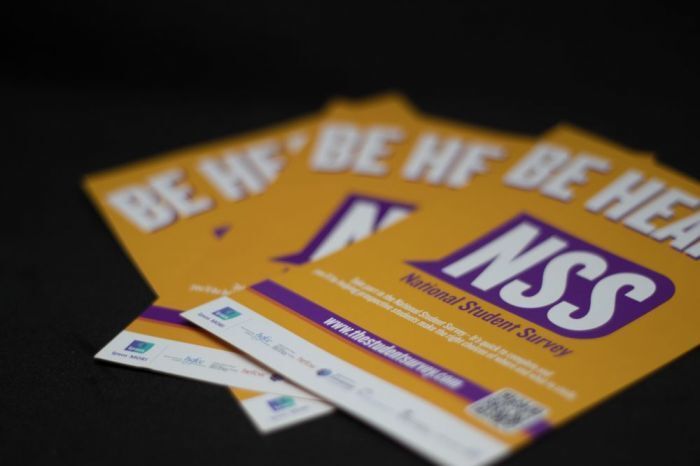Cambridge boycott against National Student Survey successful for third year in a row
Responses from Cambridge finalists were 29% below the required threshold for usable data

The response rate of Cambridge University finalists to the National Student Survey (NSS) this year was 21%, CUSU announced earlier today, meaning the student union has led its third consecutive successful boycott of the survey.
The number of responses falls well below the 50% response rate threshold needed for Ipsos Mori, the market research company which administers the NSS, to publish data from students of the University, although around 4% more finalists completed the survey this year as compared to 2018. Data which does not meet the 50% threshold is considered invalid and unusable.
The boycott will affect the University's ranking in the government's Teaching Excellence Framework (TEF) scheme, where institutions are ranked gold, silver, or bronze according to criteria of graduate employment, student retention, and student satisfaction.
Higher Education Institutions (HEIs) who hold a gold or silver TEF award may charge higher tuition fees up to £9,250 per year, whereas the maximum fee those without a TEF award can charge stands at £9,000 per year.
The University has continued to encourage students to fill out the NSS, with an email sent to finalists offering those who complete the survey a free hot drink. It stated that: “Results from the survey are discussed at both University and College committees,” referencing student feedback on workload as well as assessment of the course. They added that “any good practice you help us identify, is shared across the collegiate University.”
Speaking to Varsity, CUSU Education Officer Matt Kite noted that “the continued boycott sends a strong message that Cambridge students stand strongly against the government's damaging reforms to higher education, and are not willing to be complicit in turning higher education into a competitive market in which universities are pitted against each other”.
He continued: “the results of the NSS are used to rank universities and turn students into passive consumers. They damage the quality of education we receive by forcing universities to pour money into marketing and superficial or misguided changes that drive up satisfaction statistics without tackling real structural issues".
In a statement calling for students to boycott the 2019 survey, CUSU also pointed out concerns relating to the “quality” of the data gathered by the survey, which they said “has been shown to disadvantage women and BME academics as well as discourage innovative teaching”.
This is the third year that Cambridge has successfully boycotted the NSS. 2016, the last year in which the university didn’t boycott, saw 68% of students completing the survey.
CUSU has pointed to other ways in which the university may receive feedback from students, including student representatives like JCRs, MCRs, Faculty Reps, as well as the Student-Led Teaching Awards.
The NSS came under fire in 2017 due to its links with TEF and tuition fee changes. The National Union of Students (NUS) organised a national boycott of the survey which was supported by 25 universities and higher education establishments, alongside Cambridge Defend Education (CDE).
As a result, 12 universities successfully boycotted the NSS in the same year, which also lead to the boycott being mentioned in the discussion of the Higher Education Bill in the House of Lords.
Campaigners have warned, however, that we cannot be sure this freeze will continue, or that the link between TEF and tuition fees has been completely separated.
Update at 13.32: an excerpt from an email sent to finalists encouraging the completion of the NSS was added.
Update at 08.50: information regarding the effect of the boycott on the University's ranking in the TEF was amended.
 News / CUP announces funding scheme for under-represented academics19 December 2025
News / CUP announces funding scheme for under-represented academics19 December 2025 News / SU reluctantly registers controversial women’s soc18 December 2025
News / SU reluctantly registers controversial women’s soc18 December 2025 News / Cambridge welcomes UK rejoining the Erasmus scheme20 December 2025
News / Cambridge welcomes UK rejoining the Erasmus scheme20 December 2025 Features / Should I stay or should I go? Cambridge students and alumni reflect on how their memories stay with them15 December 2025
Features / Should I stay or should I go? Cambridge students and alumni reflect on how their memories stay with them15 December 2025 Film & TV / Timothée Chalamet and the era-fication of film marketing21 December 2025
Film & TV / Timothée Chalamet and the era-fication of film marketing21 December 2025











